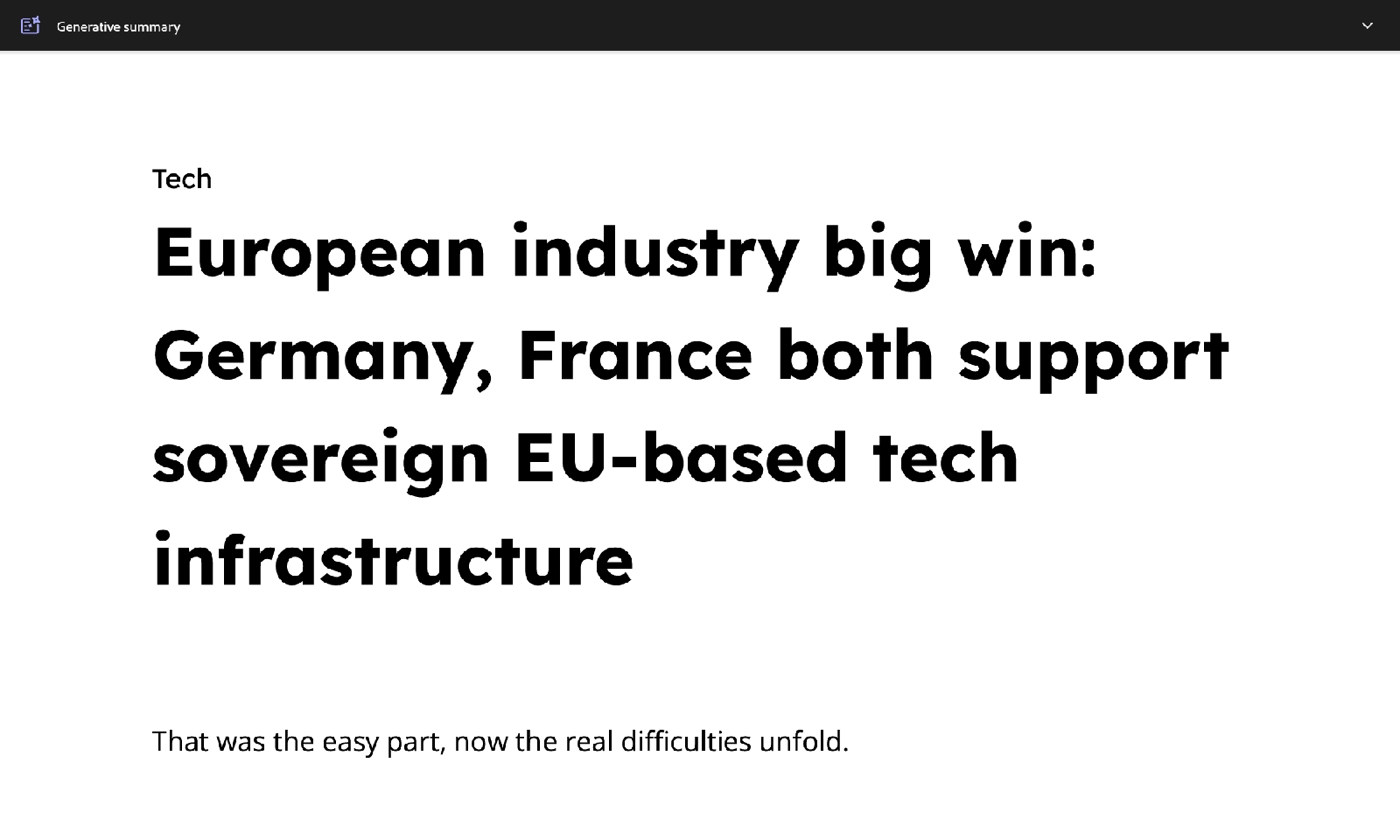The German and French governments both formally announced their support for a proposed "Eurostack" initiative on 9 April - though they offered few specifics, setting the stage for potentially tough negotiations ahead. The Eurostack initiative seeks to de-risk the continent on its over-reliance on US technologies in building a sovereign European tech infrastructure—from semiconductors and cloud services to platforms, social media, and artificial intelligence (AI)—spanning the entire value chain. We are supporting the Eurostack initiative, reads the German centre-right and centreleft coalition document published on 9 April. "Yes, we support" the development of European solutions, the cabinet of French AI and Digital Minister Clara Chappaz told Euractiv in an official response to Germany's backing of the Eurostack initiative, adding that the French and German administrations are in contact to build a joint roadmap. This joint backing will undoubtedly create a positive reaction and high expectations within the European industry. The German coalition stance had been already praised in a LinkedIn post on Wednesday by influential antitrust expert Cristina Caffarra, who leads the push for the Eurostack project. But that was the easy part, now the real difficulties unfold, as a highly debated and overly complex non-binding report on EU tech sovereignty in the European Parliament exposes deep divides between parties and nationalities. Indeed, France and Germany have very a different take up in high-speed networks (fibre and 5G) - a foundational element of the Eurostack- as highlighted by the latest Commission report. France and Germany's energy mixes - a foundational element for powering data centres - are also very different, with the two countries f ighting relentlessly about whether nuclear energy is a renewable energy or not. The two economic powerhouses of the EU have as well been relentlessly fighting for years over a number of tech issues, including the definition of what is a secure cloud. The Eurostack initiative would moreover require a true European industrial policy, something that has never existed at EU level. It is also easy to agree on a label, but the "Eurostack" concept is still very vague, with some initiatives suggesting investment reaching hundreds of billion of euros in what seems to be public funds, when initiatives -like the Caffarra's initiative- prioritises private solutions and controversially defends the French view on cloud security. Until now, the EU has been reluctant to take sides, and the President of the Commission Ursula von der Leyen herself expressed only timid support to the Eurostack initiative, in a letter sent to German MEPs on Wednesday as well.

Yorumlar
Yorum Gönder